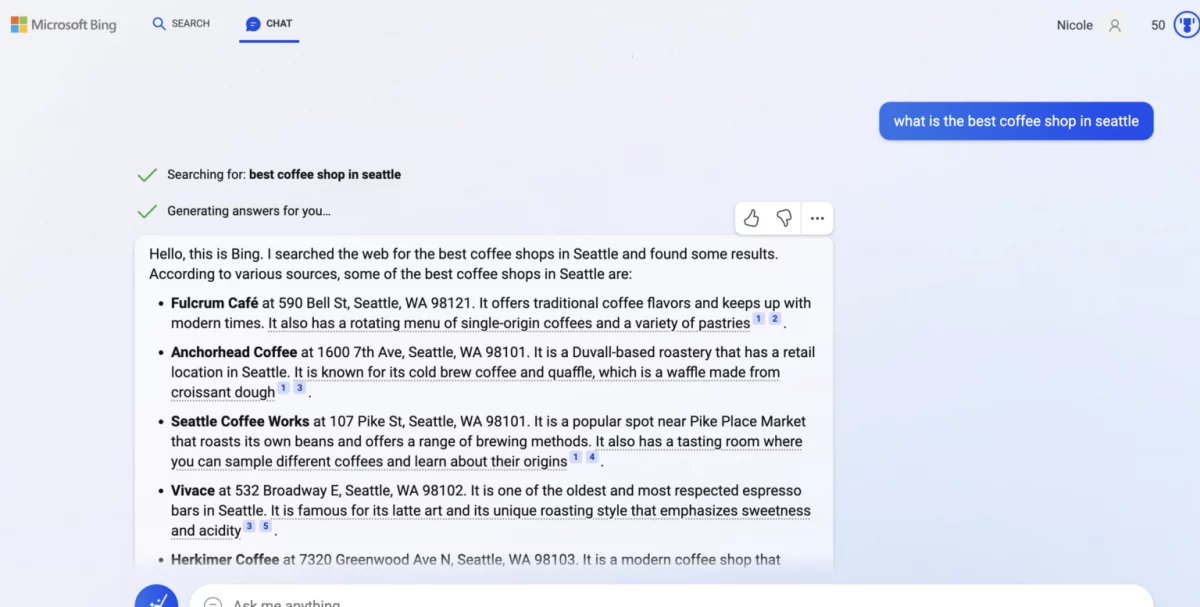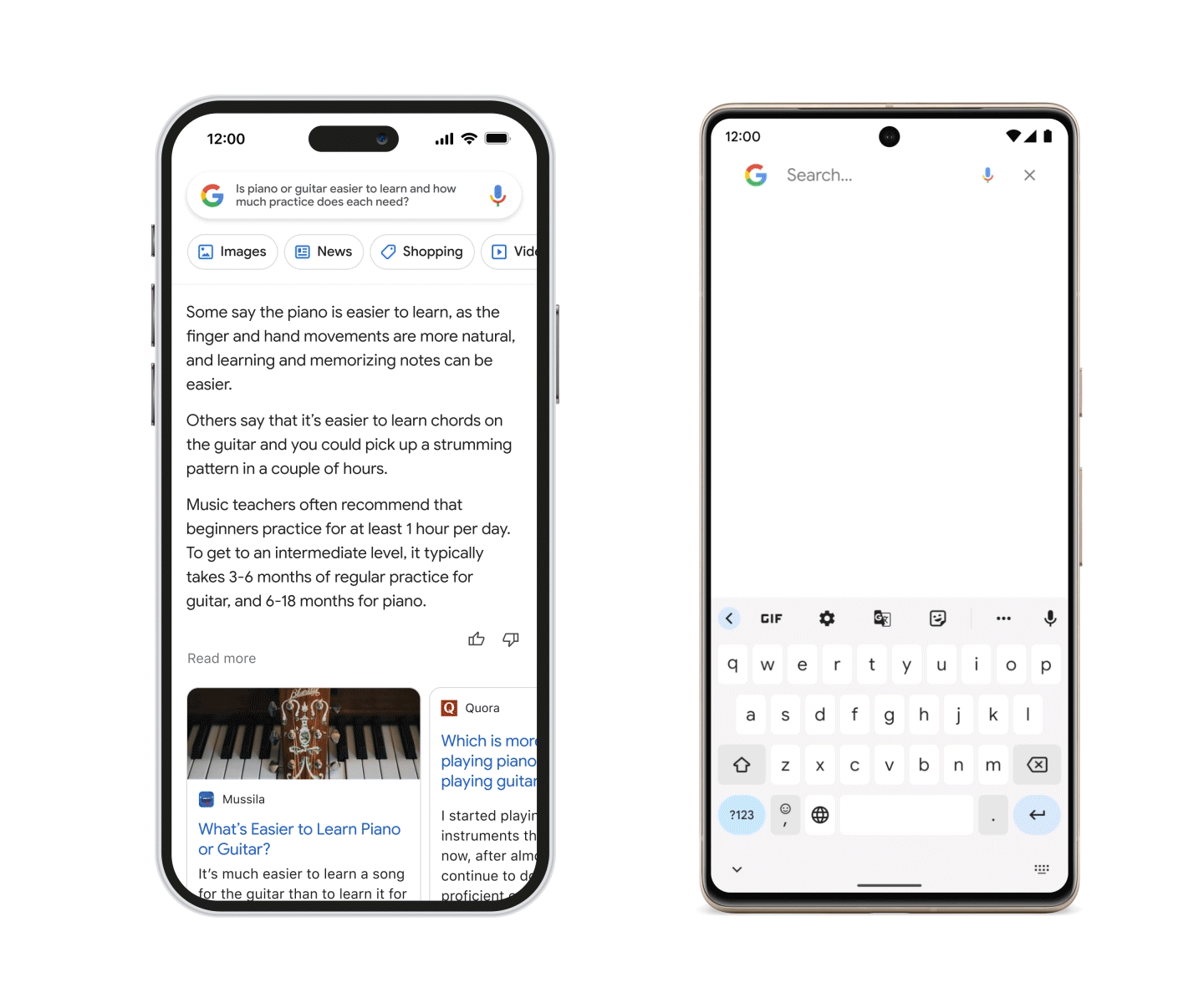Local Memo: Bing Debuts ChatGPT Integration
In this week’s update, learn about Bing’s new ChatGPT integration; Google’s competitive AI tool, Bard; Google’s updates to Lens, Maps, and Translate; Twitter’s outage and longer tweets for subscribers; Google’s removal of special characters from business names; and Meta’s big investment in the metaverse.
Bing Debuts ChatGPT Integration
Microsoft has issued an official announcement about the integration of OpenAI’s ChatGPT conversational AI technology into Bing search and the Edge browser. The announcement was made last week at a private event at Microsoft headquarters. Attendees were given a glimpse of the new Bing interface, which utilizes a so-called “Prometheus model” of OpenAI’s technology that improves the relevancy of answers, annotates them, and maintains their freshness. Bing has also applied AI to its core search algorithm, reportedly leading to the largest improvement in relevance in the search engine’s history.
The Edge integration turns ChatGPT into an “AI co-pilot” for web users, providing services such as summaries of long articles and translation of software code into different languages.
Over one million users signed up to get access to the new Bing within the first 48 hours after the waitlist was made available. (Downloads of the Bing search app also spiked by 1800% in the same period.) Some journalists were given early access, describing the chat interface as similar to ChatGPT but with the addition of links to attributed sources. Users described mixed results but a generally positive experience.
Chat interface in Edge browser, courtesy Search Engine Land
Google Unveils ChatGPT Competitor Bard
Google will launch its equivalent to ChatGPT, a conversational AI tool called Bard. This news, previewed in a recent earnings call, was announced by Google CEO Sundar Pichai on February 6. The Bard interface will look similar to the ChatGPT interface, and the technology is described as an experimental AI tool powered by Google’s LaMDA (Language Model for Dialogue Applications). Google is working with a third-party company to test Bard with a group of external users before the tool is made publicly available.
An example shared by Google of Bard’s capabilities contained a factually incorrect answer about space telescopes; lack of confidence in Google’s response to OpenAI caused Alphabet stock to drop 9%, but the company stated that this type of response is the reason rigorous testing is needed.
Similar to Bing’s integration of ChatGPT in search — but separate, it seems, from the Bard tool — Google AI will also provide conversational responses to search queries, as demonstrated at Google’s live event in Paris on February 8.
AI as a new section in search, courtesy Google
Google Announces AI-Based Updates to Lens, Maps, and Translate
Also at its Paris event last week, Google discussed updates to Lens, Maps, and Translate all of which are powered by new AI capabilities.
Multisearch, the Lens feature that allows users to attach text to image-based queries, will soon be coming to the web. Multisearch will also add support for “near me” searches globally on all mobile devices that support Lens.
Google Maps will see several updates, including “glanceable” directions, where your ETA and next turn will display on the home or lock screens without having to open the Maps app; the launch of immersive view in more cities; the launch of Indoor Live View in 1,000 more airports; and several features supporting navigation for EVs.
Translate will also see improvements to contextual translation of words and short phrases, as well as improvements to live AR translation in Lens.
Twitter Outage, Longer Tweets for Subscribers
Twitter went down for many users across the globe for several hours on February 8, for reasons that are still obscure. During the outage, users saw the message that they had exceeded their daily limit of tweets. Many other features, such as direct messaging, were also unavailable. CEO Elon Musk reportedly urged developers to deprioritize new projects in favor of restoring the platform’s stability.
In other Twitter news, users of the new Twitter Blue subscription service will now be able to post tweets that are up to 4,000 characters long, much longer than the current 280 character limit for most users. Blue users will be able to compose longer tweets as well as quoted tweets and replies. The subscription service has so far failed to catch on with users, however, fewer than 300,000 of whom have signed up for the paid version of Twitter.
Google Removing Special Characters from Business Names
Google has apparently been removing emojis and special characters from business names in Google Business Profiles over the past few weeks, according to reports from several users. While Google does not expressly ban emojis in its guidelines on business names, it does specify that business names need to match real-world signage. The guidelines do explicitly ban the use of copyright symbols as well as special characters such as these: %&$@/. Some businesses have used emojis and special characters in the past to stand out in search results.
Meta Has Been Spending Big to Build the Metaverse
Meta has released its earnings statement for Q4 2022, revealing that the company has just barely beat revenue projections of $31.53 billion with $32 billion in actual revenue. The report also includes $5 billion in spending during Q4 on metaverse development, bringing Meta’s total investment in the metaverse to $13.7 billion in 2022.
This compares to $10.2 billion in 2021. Continued heavy spending comes amidst less bullish messaging on the metaverse from Meta, with the company now emphasizing the need to ensure its long-term future by investing in emerging technologies, amidst declines in ad revenue that threaten its current core business.
Damian Rollison
Subscribe to Local Memo!
Signup to receive Local memo updates and the latest on localized marketing, delivered weekly to your inbox.

